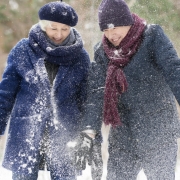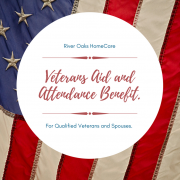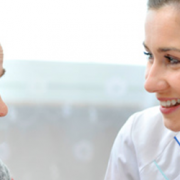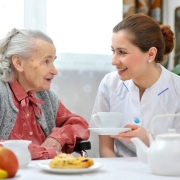As family members get older, it may become difficult for them to continue living entirely on their own. Health concerns, diminished mobility, and cognitive decline are all factors to consider when deciding when older family members need living assistance. Contrary to popular belief, there are options other than traditional nursing homes and assisted living facilities. Depending on the level of care required, some seniors can remain at home with the help of home care services. River Oaks Home Care is dedicated to helping Seniors continue to experience the richness of life in the comfort of their own home.
Allowing seniors to remain in their homes can produce better outcomes than moving them into a nursing home or assisted living facility. Home health care for seniors used to be the kind of thing that only the wealthy could afford. However, an increase in the number of trained home health professionals has led to more affordable prices. River Oaks Home Care provides high-quality home services for seniors that are effective and less expensive than other forms of managed care.
River Oaks Home Care has home health aides who improve the quality of life for seniors through professional, hands-on care and compassionate kindness. Often, our clients consider their home health aide or caregiver to be a trusted friend. We have a diverse pool of associates, so we always have someone with the skill set you need. Depending on the training, home health aides can administer a client’s medication or check vital signs, change bandages or dressings, and or provide skilled health care as a Certified Nursing Assistant (CNA) or Patient Care Assistant (PCA).
Home health aides can also help around the house in a variety of ways. They can assist with tasks such as bathing, dressing, meal preparation, grocery shopping, and light housekeeping. Our home health aides can stop by for companionship visits, give the client a ride to appointments, and more. River Oaks Home Care does everything possible to help improve the health and quality of life of seniors.
River Oaks Home Care can also provide care for seniors who are experiencing the effects of Alzheimer’s disease or dementia. Our attendants provide specialized, non-medical Alzheimer’s care that can allow seniors in the early and middle stages of the disease to remain at home. More than half of all diagnosed Alzheimer’s patients continue to live in home settings. River Oaks Home Care staff can help with responsibilities (e.g., daily orientation to time, place, and person) that can overwhelm family and friends who are assisting the senior.
Our specialty Alzheimer’s care services utilize a customized care regimen that will take into account the environment and unique needs of seniors, which makes their lives less difficult and stressful compared to moving them into a nursing home or assisted living facility. Other advantages include staying in the home that provides a familiar frame of reference, the freedom to move about in a more casual and unrestricted space, reduced stress which aggravates dementia symptoms, and continuity of daily routines and schedules.
Home health care services are more affordable than people assume. You can request a free quote for the services you need from our website. If you have any questions about getting home health services for your family member, send us a message online.





